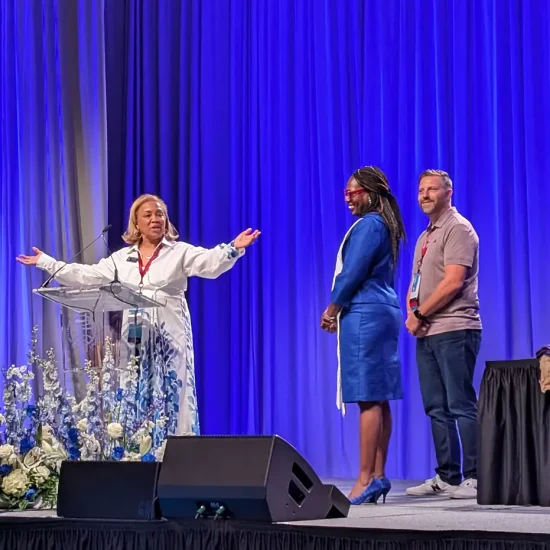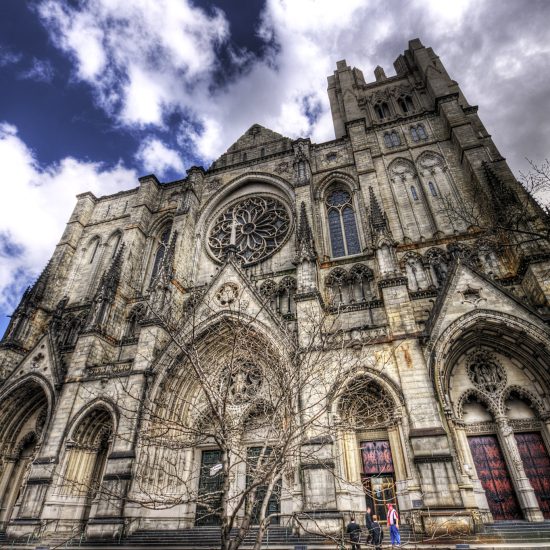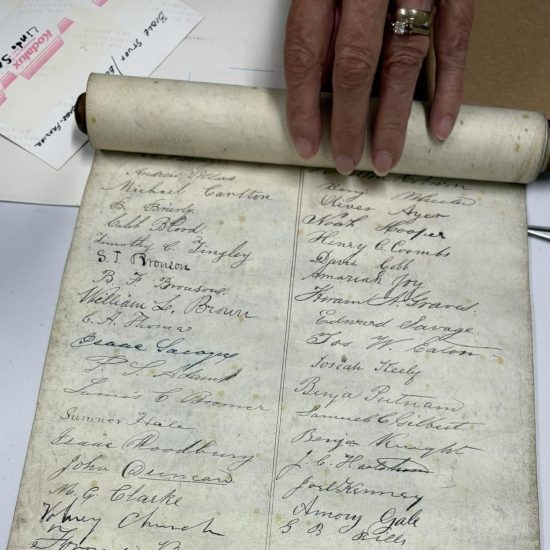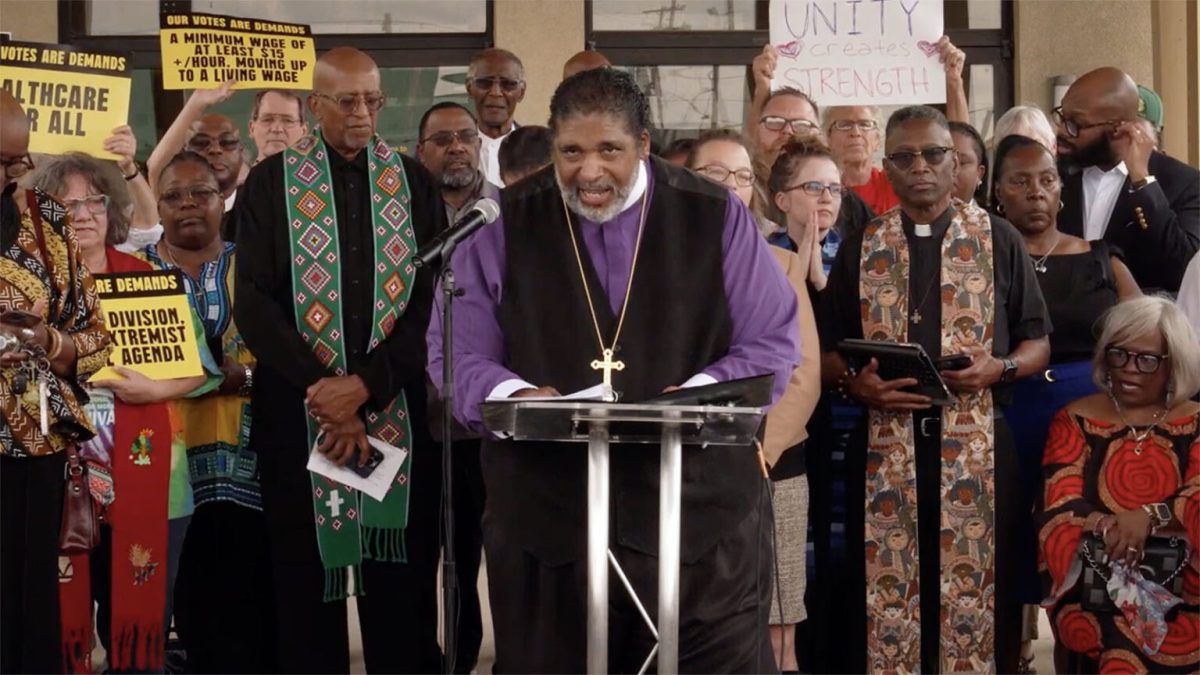
(RNS) — As a storm loomed over Springfield, Ohio, Sunday afternoon (Sept. 22), some 60 Ohio faith leaders gathered outside the city’s Greater Grace Temple to welcome the Rev. William Barber II, who was invited to the city by clergy to push back against former President Trump and vice president-hopeful J.D. Vance’s campaign messages about Haitian immigrants in the city.
“Do not reject God by rejecting your Haitian neighbor,” said Barber, the Disciples of Christ pastor and founder of Repairers of the Breach, a civil rights and anti-poverty organization. “Take your lies, take your foot, take your oppression, take your distortion off the back of our immigrant brothers and sisters. It’s gone on far too long, and we won’t be silent anymore.”
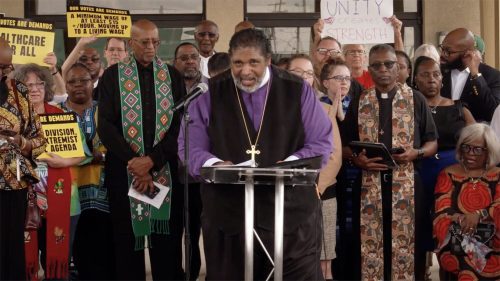
The Rev. William Barber II addresses a rally in support of Haitian migrants on Sunday, Sept. 22, 2024, in Springfield, Ohio. (Video screen grab)
Barber’s visit came as Repairers of the Breach issued an open letter signed by more than 230 faith leaders. “In the name of the God we serve and worship, we call on you to repent your lies and tell your supporters to let the people of Springfield live in peace,” read the letter, which is addressed to Trump and Vance.
Barber said faith groups would be distributing the letter to collect additional signatures in the coming days. Nine other letters from national and regional faith groups — from the United Church of Christ to the Ohio Council of Churches — also denounced xenophobic rhetoric and called people of faith to support Haitian businesses and nonprofits, including Springfield’s Haitian Community Help and Support Center.
These responses come weeks after Trump’s Sept. 10 remarks during the ABCNews presidential debate about Haitians eating pets in Springfield. But as many of the religious leaders note in their letters, the claim is no joke and has prompted the arrival of hate groups and a flurry of bomb threats in the city.
Besides heading up Repairers of the Breach, Barber is co-chair of the Poor People’s Campaign and founding director for the Center for Public Theology and Public Policy at Yale Divinity School. At the vigil, he readily quoted Scripture and condemned the “pet-eating” misinformation, calling it a distortion.
“If we were really concerned about the politics of justice, what we really would be talking about is how we are going to fix the fact that there are 3.7 million poor and low-income people in Ohio, 32.8% of the population,” said Barber, whose organization has been working to put poverty reduction on the agenda ahead of the November election. “What we ought to be talking about is that even though Ohio has a minimum wage of $10.80 an hour, you got to work 76 hours a week just to afford a modest two-bedroom apartment.”
Barber also pointed to Springfield’s history as a stop on the Underground Railroad. Today, that tradition of providing refuge should extend to Haitians, he said. “The poverty of Haiti is directly tied to bad politics that forced people who had been enslaved to in fact pay their enslavers for their freedom,” he said.
He was joined at Sunday’s event by Rabbi Karen Bodney-Halasz, senior rabbi of Temple Israel in Dayton, Ohio, who noted that in the Torah, God commands his people to protect the stranger 36 times. “Haitian migrants, like all people, are created ‘b’tzelem Elohim,’ in the image of God,” she said. “When fear and prejudice dictate our actions towards others, we fragment our world further.”
Youssef Elzein, a member of the Islamic Council of Dayton, which comprises 12 mosques in Ohio’s Miami Valley, said that as an immigrant who arrived in the U.S. 40 years ago, he was familiar with being targeted as an outsider. In prayer, he asked Allah to help those present to be faithful partners committed to justice. “May Allah reward you abundantly for your selfless acts of kindness and your unwavering compassion towards those who seek help,” he said.
The event concluded with words of gratitude from Lana Joseph, a Haitian attorney based in Atlanta who came to Springfield in solidarity with the city’s Haitian community. Quoting the biblical prophet Micah, she called on the people of Springfield and national politicians to do justice and love mercy, particularly in the face of wrongdoing. “As we stand here together, you remind us, as Haitians, of our motto that says, ‘l’union fait la force,’” she said. “That means, ‘unity makes strength.’”
Following a rendition of the spiritual and civil rights anthem “We Shall Not Be Moved,” the Haitian advocates led the group in the Haitian national anthem, “La Dessalinienne.” “ Pour le Pays, pour les Ancêtres, marchons, marchons, marchons unis,” they sang. In English: “For the Country, for the Ancestors, let us march, let us march, let us march united.”
Jack Jenkins contributed to this story.

